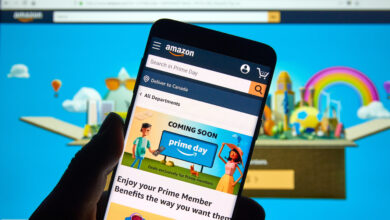A
A
A
With the plethora of different mobile devices flooding the modern market, it can be difficult to decide which type of phone is the right choice for you. Various devices boast numerous benefits with select drawbacks. Thus, learning the differences between iPhone and Android smartphone models is a great place to start.
iPhones
In general, Apple products are more expensive than competing brands. Additionally, there are relatively few models to choose from. These models tend to hold their value better after purchase, which can be useful for resale. This can be a benefit for those who don’t want to spend hours researching a phone and then customizing it upon purchase. For those willing to spend a premium for a low-maintenance device that works well, Apple smartphones are a great choice. iPhones tend to have more cases and accessories available too, as it is easier to make a variety of cases for only a few models.
Read More »
For security-focused customers, Apple products are unequivocally safer devices than Androids. They are incredibly resistant to malware and other forms of digital attacks. The Apple Store provides a fantastic customer service outlet for iPhone owners, an experience that is unparalleled among competitors. Issues are admittedly rare in newer iPhones but knowing that there is an expert team of help available can sway those looking for a new phone.
Androids
Androids are infinitely more customizable than iPhones. They can be used as USB drives and the default apps, themes and displays of the phone can be changed dramatically. Some users will argue that this customization ability ruins the style of the phone, but this largely depends on the individual. Furthermore, there are tons of Androids to choose from, especially when compared to iPhones. There are several companies that make Androids, such as Samsung, HTC, Motorola, Google and many more. Once a customer picks a company, they also need to pick a model. This gives the customer more control over the specific features in the phone as well as the software.
In general, Androids can hold their charge for significantly longer than competitors. For users that may not have consistent access to a charger, this can be the sole selling point for Androids. Most devices are customizable enough that batteries can be changed or replaced. Another selling point is the ability to add and remove storage, specifically in the form of micro SD cards. iPhones come only with the amount of storage listed on the box – this can never be upgraded. Conversely, most Androids have a micro SD slot, making it easy to add another 64GB of memory to a phone. This has practical application for mobile gaming, photography and more.
Overall. it is impossible to make a resolute statement on which smartphone is better overall. Individuals should consider what features they want the most from their phone, as well as the company that provides it. By choosing the best phone for them, they will ultimately have the best experience. Whether it be an Android or one of the few different iPhones, there is a phone for every user.






